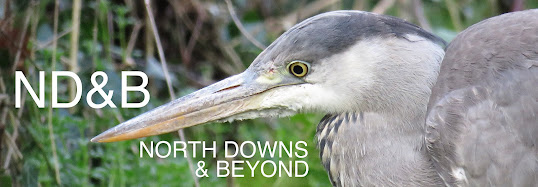Surfs up
Dungeness April 1984
A walk out to the Brooks takes a concerted effort. In the first instance you need to drive several miles, via Lydd, and then along a series of pot-holed tracks. Once parked off-road on a steep grassy bank you then have a good mile walk along a raised earth track, 100yards from the sea and running parallel to it. This is wild country. Either side of you is a Ministry of Defence firing range, the army frequently raising red flags to warn you not to even think about wandering out here. The area is obviously uninhabited and seldom visited. The spent shell cases and concrete bunkers are reminders of the regular khaki war games. What makes this place worth the visit is the presence of several water bodies cut off from the sea by a thin shingle bank. They are known as the Brooks.
A walk out to the Brooks takes a concerted effort. In the first instance you need to drive several miles, via Lydd, and then along a series of pot-holed tracks. Once parked off-road on a steep grassy bank you then have a good mile walk along a raised earth track, 100yards from the sea and running parallel to it. This is wild country. Either side of you is a Ministry of Defence firing range, the army frequently raising red flags to warn you not to even think about wandering out here. The area is obviously uninhabited and seldom visited. The spent shell cases and concrete bunkers are reminders of the regular khaki war games. What makes this place worth the visit is the presence of several water bodies cut off from the sea by a thin shingle bank. They are known as the Brooks.
Historical records show that they were once highly
attractive to waders, together with the Midrips and Wicks that lie further
west. This whole area was well watched after World War Two and has claim to a
number of extreme rarities. They are no longer birded to such an extent. I’ve
always thought it a wonderful place to come – you can escape the crowds, take
in the moonscape and stand a good chance of some noteworthy observations. This
afternoon has confirmed these convictions...
The late afternoon’s stroll had not
thrown much up in the way of birds, but when Tim Toohig and I had reached the
Brooks our scanning of the sea westward had revealed a sizeable flock of scoter
resting on its surface. A few Eider were also present so we took the decision
to carry along the beach to scan through them. We could so easily have turned
back and not bothered. Five minutes later we were scooping the flock - Common
Scoter and Eider as we had deduced earlier. A bird from the back of the pack
broke ranks and swam out clearly into view. I was watching a spanking drake
Surf Scoter, a new species not only for Dungeness but also Kent. Tim quickly
got onto the bird and for the next ten minutes we animatedly took notes and
revelled in our luck. I stayed to keep an eye on the scoter whilst Tim returned
to the observatory to alert those present about its presence.
At least forty
minutes past before a gaggle of birders appeared on the horizon, running along
the shingle, laden down by scopes and tripods, faintly reminiscent of the Dad’s
Army cast in the closing credits. The bird had stayed put, coming in much
closer during my solo observations, but had now drifted out somewhat. All
present were the usual suspects of observatory regulars and local birders and were more than pleased to be watching this most unexpected duck.
Chance is
a major component of birding. It was lucky that this particular scoter flock
had decided to rest up offshore from this particular beach on the very
afternoon that we decided to make our first visit of the year to the Brooks. Typically
this makes me all the more aware of what we actually miss…


Comments